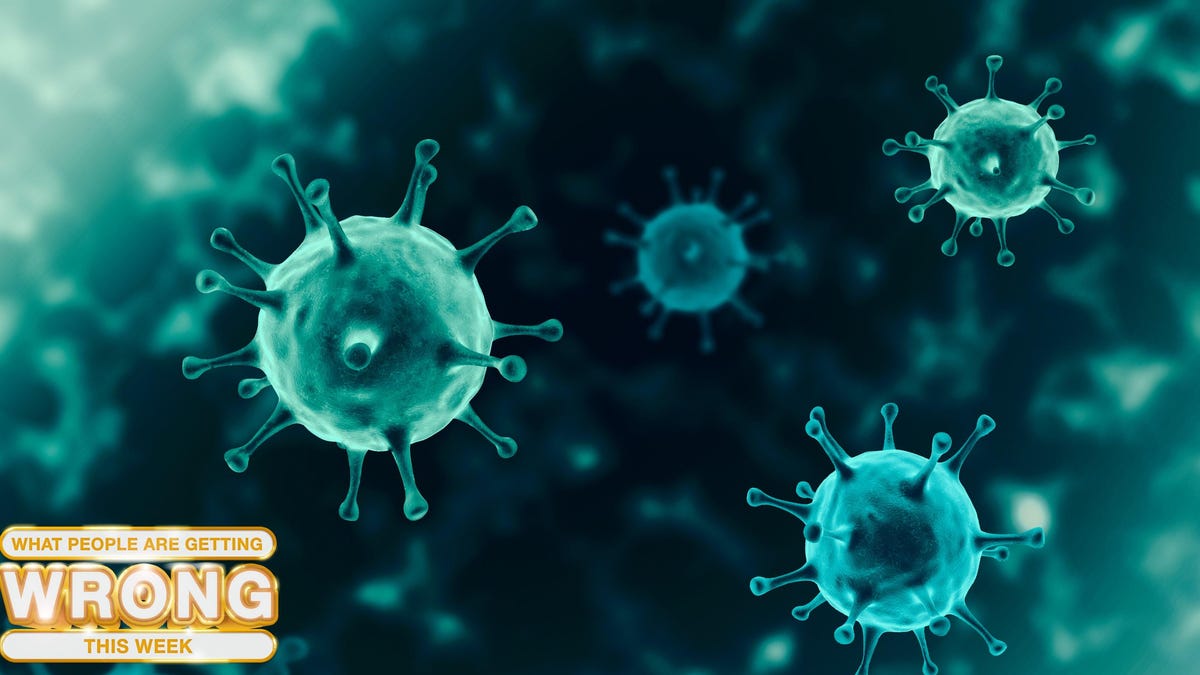What People Are Getting Wrong This Week: COVID Vaccine Conspiracies

You could fill a book with stupid things people are thinking about COVID-19. Unethical actors preying on public fears about a deadly disease are as predictable as they are depressing, and as infection rates rise due to new variants, misinformation and lies are spreading almost as quickly as the virus itself.
Just take a look at this tweet : It says: “URGENT: CDC says Americans who have received the mRNA COVID vaccine are now at higher risk of contracting new variants of the virus than those who are not vaccinated.” The tweet, published Sept. 4 by Leading Report, has been viewed more than 7.5 million times on Twitter, and I’m writing this just two days later.
Is the CDC lying about Covid? (No.)
The tweet is 73% true, so it’s easy to see why people were deceived, but the last 27% changes its entire meaning and is an insidious tipping point for misinformation. The CDC has warned that the BA.2.86 variant may be more likely to infect vaccinated people and people who have had COVID, but that’s compared to older variants . Not compared to unvaccinated people , as the tweet says.
The CDC’s August 23 risk assessment makes no mention of the unvaccinated at all. Instead, the CDC said current tests and medications appear to be effective against the new variant and that a vaccine due in mid-September “will be effective in reducing severe illness and hospitalizations.”
Why people believe conspiracy theories about COVID
Most people who take the trouble to study the report underlying this tweet and combine it with their previous knowledge of best practices in infectious disease control will conclude that the healthiest choice is to get vaccinated/increasedly vaccinated in mid-September. But if you just read the tweet and compare it to the infrastructure of COVID misinformation that has been seeping into the dark corners of the internet for the last four years or so, it would be wise to remain unvaccinated.
A single bad data point can be debunked by something like a community note in a tweet, but you can’t debunk a worldview. In the world of conspiracy theories, correcting misinformation is often seen as confirmation that THEY (the World Bank, the deep state, etc.) are under threat because the truth is coming out. They also view mitigation of infectious diseases, whether through vaccines, closures or masks, as government overreach trying to control the population. One of the most hated examples of totalitarian power is the Centers for Disease Control and Prevention. So it’s interesting that the anti-vax crowd is sharing this particular tweet. The intended source is the Centers for Disease Control and Prevention (CDC). If there was any internal consistency to their worldview, you’d think they would have immediately dismissed this tweet rather than using it to lend legitimacy to their argument. Conspiracy theories always unravel if a thread is pulled, but it doesn’t matter because conspiracy theories don’t come from a rational source.
Conspiracy theories are all vibrations
COVID conspiracy theories are ubiquitous and self-contradictory. Some people believe that this disease does not exist. Some people think it exists, but it spreads through 5G towers and is a kind of microbial warfare. COVID vaccines are seen as a government plot to kill recipients or a way to inject nanobots into our bloodstream. The details don’t really matter because conspiracy theories are a state of mind. They come from intuition, not knowledge.
Recent research suggests that conspiracy theorists behave this way mainly because they feel unsafe in their environment and want to believe that the community with which they identify is superior to others. Challenging these beliefs often results in people redoubling their efforts and finding more “sources” that support them. The deluge of news about new COVID variants is alarming, and we live in a time where in-group versus out-group dynamics are extremely common, so it makes sense that conspiracy theories would germinate and attract more people.
Are we all conspiracy theorists?
But when you apply these rules to yourself, you start to feel uncomfortable (and this is why I try to be merciful to people who believe in strange things), because in reality it could be you or me, and we wouldn’t know it. Who doesn’t feel insecure? Who can say that they don’t consider their “tribe” to be superior to other groups? (We’re a lot smarter than those stupid conspiracy theorists, right?) And isn’t most of what we believe just intuition? I take the CDC recommendations seriously, but I haven’t really looked deeply into the research methodology behind their findings. I just think they know what they’re doing and let’s leave it at that. Is this very different from believing in a YouTube video or something like that?
If you were told that your core belief was simply not true, wouldn’t you seek out information that confirmed your preconceptions in order to maintain the integrity of your inner world? Who says this isn’t something you do every day? How could you prove that this is not so?